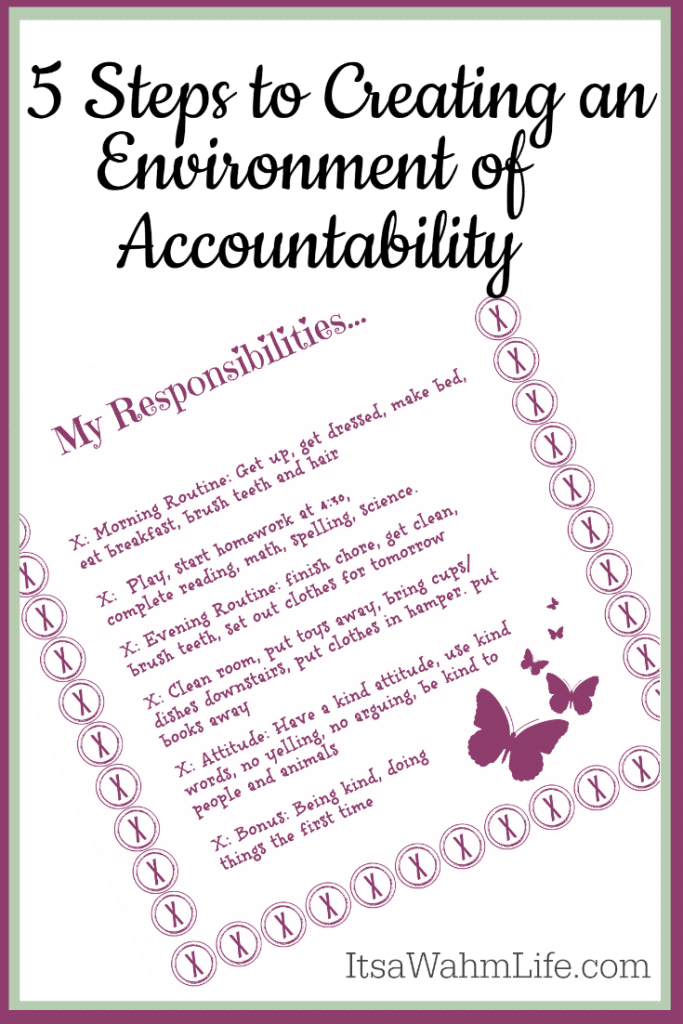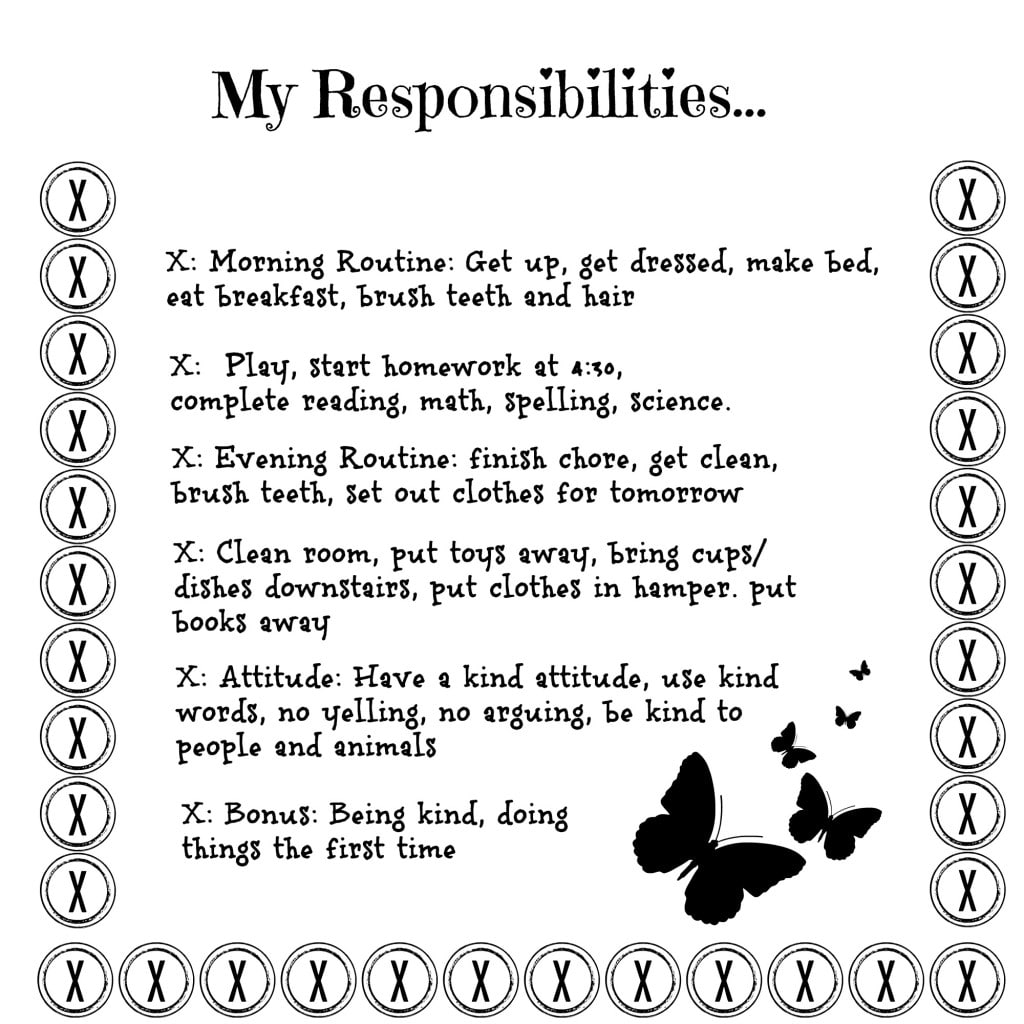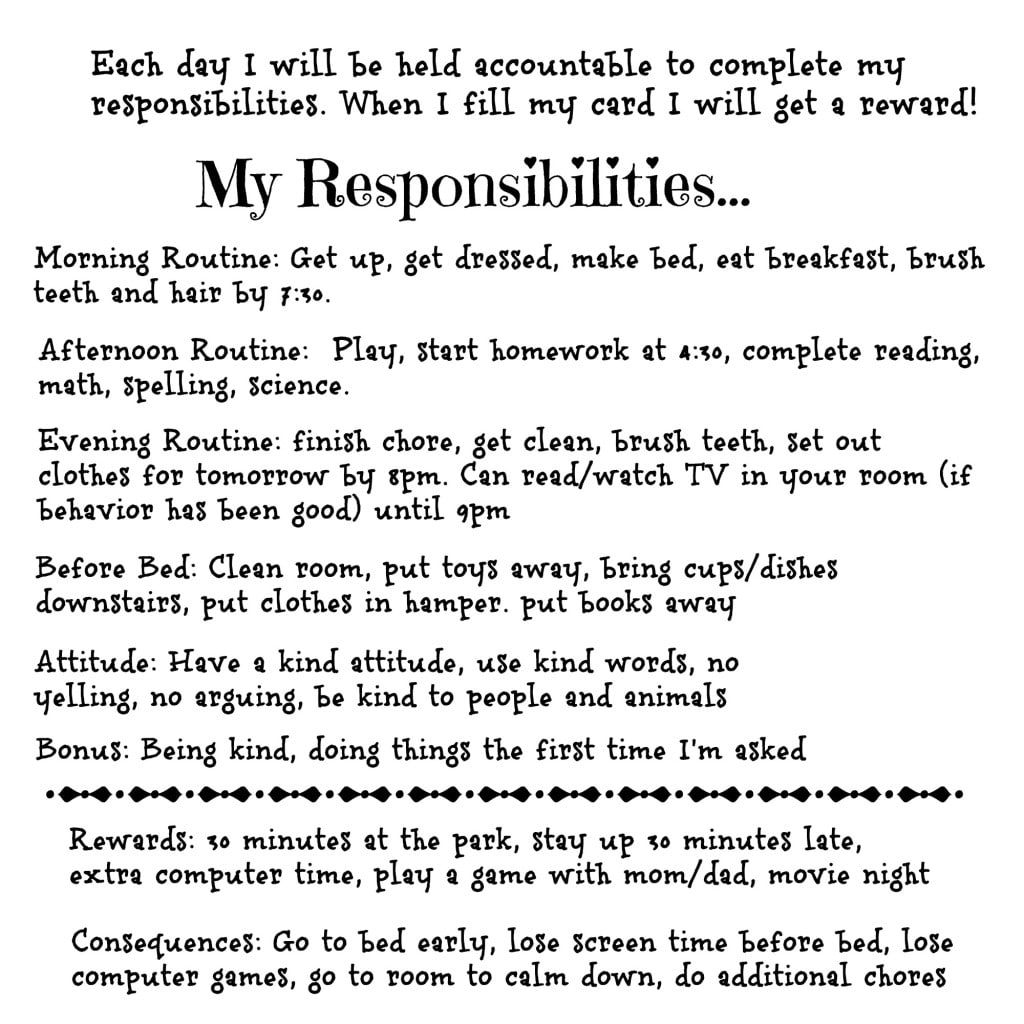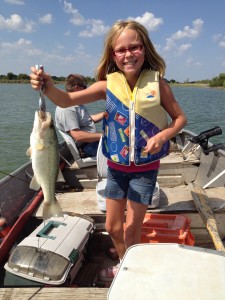Everyone believes it. It’s been ingrained in our brains since the moment we decided to become Mothers. However, (and this may blow your mind!) we are not responsible for our children. In fact, the idea you are responsible for your children is the biggest lie told in parenting, and it’s what keeps us fighting for perfection, and many of us, yelling. Now before you shut down the page… hear me out. 🙂
 I first came across this concept a few years ago while reading ScreamFree Parenting. I thought it was a joke. How on EARTH can I not be responsible for my kiddo? But I kept reading and what came next was even more intriguing.
I first came across this concept a few years ago while reading ScreamFree Parenting. I thought it was a joke. How on EARTH can I not be responsible for my kiddo? But I kept reading and what came next was even more intriguing.
I’m not responsible for my daughter… I am responsible to her. When you think you’re responsible for someone it becomes a battle about how you can make them do what they’re “supposed” to do. How can you make them happy, and behave appropriately, and not throw tantrums in the grocery store?
You see how incredibly impossible a task that is? How the whole concept is stacked against you? How you are so easily becoming frustrated and not feeling good enough? You can not control another person’s behavior. That is their responsibility.
You are responsible to your children for how you behave,
regardless of how they are behaving.
You do however, have responsibility over your behavior, and how you react, no matter how they’re behaving. That’s your responsibility. You are responsible to your children for how you behave, regardless of how they are behaving.
It might seem blasphemous… but my wish for you is that you’ll sit with this idea for a few minutes. In fact, put this post on hold, set a timer and sit with it for the next 10 minutes.
You’re back! If you’re anything like me, I bet you’re starting to understand the wisdom of this concept, and starting to feel the freedom of it all. Once you realize you can’t control another person, it only leaves you controlling your emotional reactions. Which brings us to being mindful in the moment.
“Each day you are leading by example. Whether you realize it or not or whether it’s positive or negative, you are influencing those around you.” ~ Rob Liano
You can not possibly control your children’s behavior, but you can influence it. You influence your children’s behavior through your own… monkey see, monkey do. Sound familiar?
This particularly hit home with me one day when I was sitting here, working, and my daughter was getting frustrated by something and started yelling. Just yelling at her math homework. I asked her why she was yelling. Her reply was… “because I’m frustrated”. ouch. This was a monkey see, monkey do moment. I get frustrated, and I yell. She has seen that pattern of coping for the last 8 years and it’s rubbed off on her. She gets frustrated and she now yells.
While that realization was like a kick in the gut, it was also a wake up call. If I want her to do better… I’m going to have to do better. If I want to create an environment of accountability, if I want her to be accountable for her choices, and her decisions, then I’m going to have to start being accountable for mine. That is my responsibility to her.
What’s an environment of accountability?
It might sound off putting, but it’s really liberating. You get to let go of the responsibility for your children’s decisions. You get to put it squarely back in their box. What they decide, how they behave, what they do… it’s really their responsibility. You literally have no control over it… unless you want to physically manhandle your child into submission ~ which may give you immediate results ~ but will demolish your relationship in the long term.
Having an environment of accountability is simply each person being accountable and responsible for their own stuff. You are accountable for your reactions, your decisions, your stuff… and your kids are responsible, and accountable for their own. This works even if your kids are pretty young and/or spirited! The younger you start the easier things will be for you… promise!.
5 Steps to Creating an Environment of Accountability
What do you expect from your kids? They need to know. They also need to agree with the expectations. If you can’t find common ground you’re going to be butting heads a lot… because if they can’t see “fairness” in the expectations, what reason do they have to do it?
So… make sure they know what you expect, down to the little details! Get up for school, get dressed, make your bed, eat breakfast, brush your hair and teeth by 7:30a… that’s our morning “routine” and the things my kiddo is responsible for in the morning.
I’ve broken down the day into segments and we’ve agreed on responsibilities for each segment. Clear. Concise. Mutually agreed upon.
2. Identify the consequences.
In other words, take yourself out of the equation. It’s so easy to end up being the “bad guy” when things aren’t done, and consequences are doled out. Kids (well my spirited kid at least) has an amazing knack for turning consequences of her behavior/decision into my fault. That happens when I wing it. When I wing it, I’m not consistent, the consequences aren’t consistent, the emotional reactivity isn’t consistent… and it’s easy for her to turn it all around and make me the bad guy… and because I’m not feeling completely confident (because I’m winging it) it’s easy to doubt myself/actions/reactions/consequences and fall for it.
So… set it all up ahead of time. You don’t complete the morning routine… you go to bed 30 minutes early that night. Maybe the extra sleep will help you get up easier the next morning. You don’t get your chores done and in bed before 8… then no screen time until 9pm.
You see how it is no longer about you. It’s just the way things are! Which takes you out of the equation and let’s her behavior, and her decisions dictate the consequences.
3. Identify the rewards.
You’ve got to have rewards built in. My kid is notorious for not giving a crap when she gets a consequence. Take all her horses away and she’ll give you one you missed just to prove she “doesn’t care”. But when I started adding in rewards… things got a lot easier. Rewards don’t have to be enormous… but they do have to matter to your kiddo. Some of our rewards include 30 minutes at the park, playing a game with mom or dad, extra time for video games, staying up late 30 minutes, and family movie night.
This is a great place to pull your kiddo into the process. Let them help come up with some rewards. You might be surprised what gets them excited!
4. Identify an accountability system.
 There’s got to be a way to keep them interested and excited about staying on track. You’ve got to have a way to say good job, and oops, you missed the mark on that one. We’ve created a “punch card” system. But you could use a token economy, or anything else your imagination can come up with, as long as the kiddo can visually see their accountability in action.
There’s got to be a way to keep them interested and excited about staying on track. You’ve got to have a way to say good job, and oops, you missed the mark on that one. We’ve created a “punch card” system. But you could use a token economy, or anything else your imagination can come up with, as long as the kiddo can visually see their accountability in action.
So for our punch card, she gets a circle punched for each segment of the day she completes. I also set up a “bonus” option based on behavior ~ doing things the first time, and being kind… two skills I’d like to see her work on. 🙂 I’m pretty liberal with the bonuses… when she sees she gets closer to her reward by being kind and not arguing, she does it more! YAY!!
5. Follow Through.
This is probably the most important piece of the puzzle. You’ve got to follow through. You can’t just start the system, say we’re doing this, and then drop it 2 days in. I will be honest… this is where I have fallen down the most. She starts behaving better, she starts being more accountable and responsible for herself, and I start to relax, and next thing I know we’re back in the thick of it, screaming at math homework again.
It can be tough to follow through, but I’ve realized just like my kiddo, I need some accountability myself! I have a group of moms who I have told about our plan, and are helping me stay accountable with my follow through. So get yourself a buddy… an accountability partner to make sure you don’t drop the ball.
So… there’s 5 steps to creating an environment of accountability for your kiddo. But you know, you’ve got to be responsible for what you’re responsible for… and that’s your behavior, your reactions. It’s not going to be all smooth sailing and peaches and cream. You’re going to get frustrated. You’re going to get overwhelmed. You’re going to get angry.
You’ve got to come up with a plan for yourself too. You’ve got to hold yourself accountable as well. It may not look like a punch card system, but you’ve got to have tools in place.
Meditation. Mindfulness. Locking yourself in the car when you feel like you’re going to lose it. These all work. It really comes down to what’s going to work for you.
It works the same way for you, as it does for the kiddos. You’ve got to be clear. You’ve got to have a plan. So don’t wait until your about to lose your shit to try to figure out how to remain calm. Create a plan now. Start implementing daily rituals that will help you over the long haul, as well as having in the moment tricks up your sleeve.
In my book Introvert Mom Spirited Child: On Allowing, Loving and Living with a Spirited Child I talk about all the things I’ve done to create a plan for myself, the daily rituals I use. I also share our stories, and how I went from almost losing my mind being around her to being thrilled to see her pop her head in the door in the morning. You can find my book on Amazon.com.
I wish you well mama! <3


















